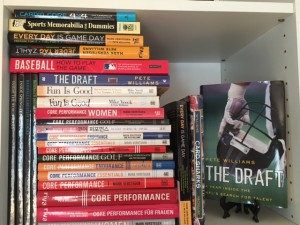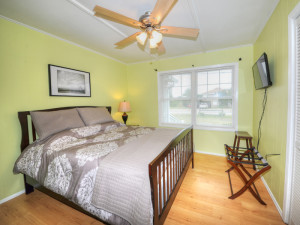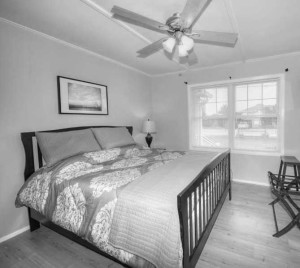 Nobody has time to read. We’re a fast-paced, overscheduled, digitally-connected culture incapable of giving our attention to anything more than 140 characters. Perhaps a short blog post or text. Maybe an actual newspaper or magazine article, but only if we can find it on our smartphone quickly.
Nobody has time to read. We’re a fast-paced, overscheduled, digitally-connected culture incapable of giving our attention to anything more than 140 characters. Perhaps a short blog post or text. Maybe an actual newspaper or magazine article, but only if we can find it on our smartphone quickly.
A book? Well, only if it’s short. And only if it can be read on the phone.
I don’t buy that. Not for a minute. Nor should you.
It’s never been easier to find the time to read. Stephen King, the prolific thriller author whose best book, ironically, might be his autobiography/writing advice book On Writing, says the key is to read in sips rather than gulps. If you wait for a long stretch of time to read, it probably won’t happen, though we recommend using the last 30 minutes before turning off the light at night to read.
But we agree with King that there are numerous 10-to-15 minute windows to read during the day. How about while parked – parked, not moving or at a stoplight- in a car line waiting to pick up kids? Or standing in line at Chipotle? Or waiting for the doctor or dentist? Or while waiting for food to cook or laundry to wash? Or while waiting for the kids’ practice to end? Or for the mechanic to finish with the car? How about while waiting for your co-workers to inevitably arrive late for the meeting? If you watch televised sports, how about during the endless commercials?
How about at the airport, a series of waits to check bags, board (inevitably late), take off (delayed again), while in the air, and later sitting on the runway waiting forever for a gate to open. King, a huge baseball fan, takes a book to the ballpark and reads between innings. Why not? What else are you going to do?
Most of us spend more time in the car than we’d like. Why not listen to books on CD or digital download? It beats talk radio, morning zoo deejay nonsense, and listening to the same tunes over and over. Plus it’s a lot less safer than using a smartphone in the car.
You no doubt have at least some of those opportunities above. It’s easy to fall into the habit of spending that time mindlessly reaching for the phone, checking social media and email, or watching whatever nonsense there is on TV, especially now that televisions have been mounted anywhere people wait: doctor’s offices, the mechanic’s wait room, restaurants, etc.
I attend several book festivals, sometimes as a presenting author myself, and it’s always amazing to see people standing in a long line with a book they just purchased, waiting for the author to sign it, and yet they’re either standing around bored or, more likely, scrolling through a smartphone. Just a thought: Why not start reading the book you just paid for and are waiting to get signed? Or some other book? You’re at a freakin’ book festival!
Here are just a few reasons to read:
It sets a good example: If you want your kids to read, shut off television and digital media and read yourself. Set aside family reading time. Read books together. The young adult genre is the strongest segment of literature because the books appeal to kids and adults. You’ve no doubt seen the Harry Potter, Hunger Games, and Divergent movies. Why not read the books with your kids? There are plenty of other similar series our family has read together, including Gregor the Overlander and The Unwanteds. Go back further and try The Lord of the Rings or The Chronicles of Narnia, to name just two. If you read, the kids will read, learn, thrive in school and establish a lifelong habit of learning. What a wonderful gift.
You might, um, learn something: As a writer, I talk to high school and college students that aspire to write. When I ask what they like to read, I get puzzled looks. They don’t have time to read. They might keep up with the news via social media. Such a shame. The only way to build vocabulary and writing ability is by reading. Aspiring to be a writer without being a voracious reader is like wanting to be a singer or musician but not listening to music.
It’s mostly free: As someone who has made a good chunk of my living writing books, I’m hesitant to admit this. But I rarely buy books. That’s because the public library is America’s best bargain. You can check out virtually any book for at least two weeks. And if you’re not done with it, you usually can renew it for another two weeks. If it’s not a new release, you can get another two weeks. How cool is that? Not only that, you don’t have to search for the books. Get a library card, go online, and see if the book you want is available at your local library. If not, they’ll track it down from a neighboring one, have it brought over, and send you an email when it arrives, giving you at least three days to pick it up.
Not only does this save money, it keeps you from accumulating clutter. Books are heavy and take up space. Rarely do you read anything twice. For those occasions, just retrieve the book from the library. I once had a massive home library, but I donated or sold 90 percent of it since I could retrieve the books from the library or the information online.
Sure, you might have to wait for a new best-seller to become available at the library since many others have discovered America’s best bargain. But there are hundreds of thousands of terrific older books to read in the meantime.
I rarely do any book reading online or on a device, unless it’s an e-book not available as a physical product. That’s because it’s too easy to get sucked into the Internet or social media rabbit holes. Plus, reading on an electronic device at night affects sleep, making your mind believe it’s still light outside. Physical books and magazines are preferable.
The key is to take a book or magazine wherever you go to take advantage of the opportunities to focus your attention on what you want, not the tired magazines in waiting rooms, the nonsense chatter on TV, or searching for something on your phone.
By limiting your screen time, you’ll discover a dozen 10-minute windows a day — two hours — to read. Combine that with 30 minutes of reading before going to bed and you’ll be one of the most avid readers in America. Your knowledge and focus will expand, your productivity will soar, and you’ll live lean.




